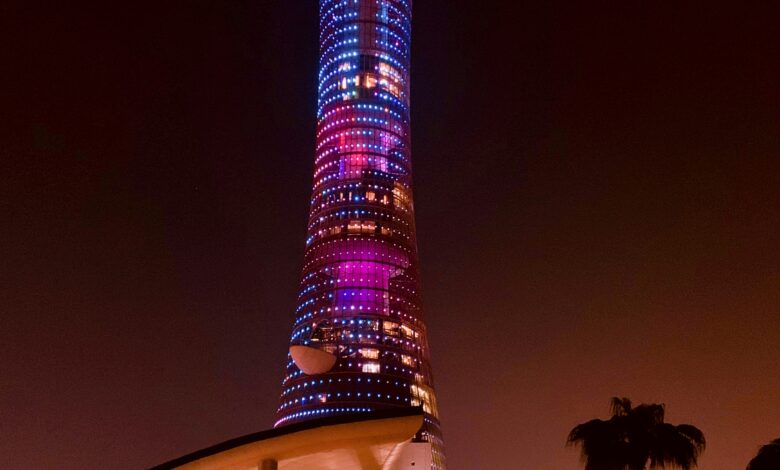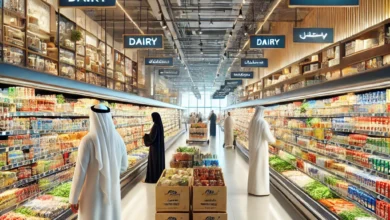
In recent years, Qatar has witnessed a remarkable transformation in its coffee culture. Once dominated by traditional tea houses and Arabic coffee rituals, the country has embraced a vibrant and sophisticated coffee scene. This article delves into the factors driving the rise of coffee bars in Qatar, the unique characteristics of this burgeoning market, and the opportunities it presents for B2B enterprises in the food and beverage industry.
The Catalyst for Change
Several factors have contributed to the rapid growth of coffee bars in Qatar. One significant catalyst is the country’s robust economic development. As one of the wealthiest nations per capita, Qatar’s citizens have substantial disposable income. This financial affluence, combined with a youthful and cosmopolitan population, has fueled a demand for high-quality, diverse coffee experiences.
The influx of expatriates has also played a pivotal role. With a significant portion of Qatar’s population comprising expatriates from Europe, North America, and Asia, there has been a natural introduction of diverse coffee cultures. This cultural amalgamation has led to a heightened appreciation for specialty coffees, artisanal brewing methods, and unique café environments.

A Flourishing Market
The coffee bar market in Qatar is characterized by its dynamic and innovative nature. Unlike the traditional coffee chains that dominate in many other regions, Qatar’s coffee scene is marked by independent, boutique coffee bars. These establishments focus on providing personalized experiences, high-quality beans, and exceptional service.
As of 2023, there are over 300 coffee bars in Doha alone, with notable names including Flat White, Arabica, Espresso Lab, and Volume Café. These coffee bars are not only popular with locals but also with tourists and expatriates, contributing to a 20% annual growth in the coffee bar sector in recent years.
One notable trend is the emphasis on specialty coffee. Qatari coffee bars often source their beans from renowned coffee-growing regions such as Ethiopia, Colombia, and Guatemala. The emphasis on single-origin beans and direct trade relationships with farmers ensures that customers receive a premium product while supporting sustainable practices. For instance, Flat White sources its beans from single-origin farms and offers a unique blend that has won several local awards for its distinctive flavor profile.
The rise of coffee bars has also been accompanied by a growing interest in alternative brewing methods. From pour-over and AeroPress to siphon and cold brew, Qatari coffee enthusiasts are eager to explore different techniques that highlight the unique flavors of each coffee bean. This diversity in brewing methods not only caters to varied tastes but also reflects the sophisticated palate of the Qatari consumer.
The Role of Major Chains: Starbucks and Costa Coffee
While independent coffee bars have surged, major international chains like Starbucks and Costa Coffee continue to maintain a strong presence in Qatar. These chains have adapted to local tastes and preferences, contributing significantly to the overall coffee culture in the country.
Starbucks in Qatar
Starbucks, with its global brand recognition, has a significant footprint in Qatar. As of 2023, Starbucks operates over 35 outlets across the country, predominantly located in Doha. These outlets are strategically placed in high-traffic areas such as shopping malls, business districts, and tourist spots, ensuring maximum visibility and accessibility.
Starbucks in Qatar has tailored its menu to include regional preferences, such as the introduction of beverages with Middle Eastern flavors, like the popular “Date Frappuccino.” The brand’s commitment to quality and consistency, along with its comfortable and familiar ambiance, continues to attract a loyal customer base.
Costa Coffee in Qatar
Costa Coffee, another major player, has also established a strong presence in Qatar. With around 25 outlets, Costa Coffee focuses on providing a cozy and welcoming environment, appealing to both expatriates and locals. Known for its distinctive blends and high-quality brews, Costa Coffee has become a favorite spot for coffee enthusiasts seeking a premium experience.
Costa Coffee has also embraced local tastes by offering items like the “Arabic Coffee Latte,” blending traditional flavors with modern coffee trends. This approach has helped Costa Coffee maintain its competitive edge in a market where consumer preferences are constantly evolving.
Unique Characteristics
Qatar’s coffee bars are not just places to grab a quick caffeine fix; they are cultural hubs that foster community and creativity. Many coffee bars host events such as art exhibitions, poetry readings, and live music performances. These activities create a vibrant and engaging atmosphere, attracting a diverse clientele and encouraging repeat visits.
For example, Volume Café in Doha regularly hosts local artists and musicians, turning the coffee bar into a lively cultural venue. This has made it a favorite spot for young professionals and creatives looking for a place to unwind and network.
The design and ambiance of Qatari coffee bars also stand out. The architecture often blends modern aesthetics with traditional elements, creating a unique and inviting space. Comfortable seating, warm lighting, and tasteful décor contribute to a relaxed environment where customers can unwind and socialize.
Furthermore, Qatari coffee bars prioritize sustainability. From eco-friendly packaging to initiatives that reduce waste, these establishments are conscious of their environmental impact. This commitment to sustainability resonates with the values of many Qatari consumers, particularly the younger generation, who are increasingly mindful of ethical and environmental considerations. Espresso Lab, for example, uses biodegradable cups and implements a zero-waste policy in its operations.
Main Coffee and Coffee Equipment Importers in Qatar
The rise of coffee bars in Qatar has spurred the demand for high-quality coffee beans and advanced coffee equipment. Several key importers play a significant role in meeting this demand, providing top-tier products to coffee bars across the country.
- Al Mana Coffee Trading: Known for its extensive portfolio of coffee brands, Al Mana Coffee Trading imports and distributes beans from renowned producers worldwide. They also provide comprehensive solutions for coffee bars, including espresso machines, grinders, and brewing tools. Their emphasis on quality and service has made them a trusted partner for many high-end coffee establishments in Qatar.
- Qatar Trading Company: Specializing in food and beverage importation, Qatar Trading Company also offers a selection of premium coffee beans and equipment. Their partnerships with top coffee producers and equipment manufacturers enable them to provide high-quality products that meet the exacting standards of Qatar’s coffee bars.
- Bin Yousef Cargo: Although primarily known for logistics, Bin Yousef Cargo also imports specialty coffee beans and equipment. Their strong network and efficient supply chain management make them a reliable source for coffee bars seeking consistent quality and timely deliveries.
Opportunities for B2B Enterprises
The rise of coffee bars in Qatar presents a wealth of opportunities for B2B enterprises in the food and beverage industry. Suppliers of high-quality coffee beans, equipment, and accessories can find a receptive market eager for premium products. Establishing direct trade relationships with coffee growers can also provide a competitive edge, as Qatari coffee bars prioritize traceability and sustainability.
Equipment suppliers have a significant role to play in this growing market. With the increasing interest in alternative brewing methods, there is a demand for specialized equipment such as pour-over kits, espresso machines, and grinders. B2B enterprises that offer training and support services for these products can further strengthen their partnerships with coffee bars.
Technology also has a crucial role in enhancing the coffee bar experience. Point-of-sale systems, customer loyalty programs, and mobile ordering apps can streamline operations and improve customer satisfaction. B2B tech providers that offer tailored solutions for coffee bars can tap into this expanding market.
Moreover, there is potential for collaboration between coffee bars and other sectors. For instance, partnerships with local bakeries, confectioners, and dairy producers can create a synergy that enhances the overall customer experience. By offering a variety of high-quality, locally sourced products, coffee bars can differentiate themselves in a competitive market.

Challenges and Considerations
While the growth of coffee bars in Qatar presents numerous opportunities, there are also challenges that B2B enterprises need to navigate. The competitive nature of the market means that differentiation is key. Companies must continually innovate and adapt to changing consumer preferences to maintain their edge.
Understanding the local culture and consumer behavior is also crucial. While Qatari consumers are open to new experiences, they also value tradition and authenticity. B2B enterprises need to strike a balance between introducing innovative products and respecting local tastes and customs.
Additionally, the regulatory environment in Qatar can be complex. B2B enterprises must ensure compliance with local laws and regulations, particularly those related to food safety and importation. Building strong relationships with local partners and staying informed about regulatory changes can help navigate these challenges.
Looking Ahead
The rise of coffee bars in Qatar is more than just a trend; it is a reflection of the country’s evolving culture and economy. As Qatar continues to develop and diversify, the coffee bar scene is likely to grow and evolve. B2B enterprises that understand the unique characteristics of this market and can offer high-quality, innovative products and services will find ample opportunities for success.
In conclusion, Qatar’s coffee bar market is a dynamic and promising sector within the food and beverage industry. The combination of economic prosperity, cultural diversity, and a growing appreciation for specialty coffee has created fertile ground for the proliferation of coffee bars. For B2B enterprises, this market offers significant potential for growth and collaboration.










